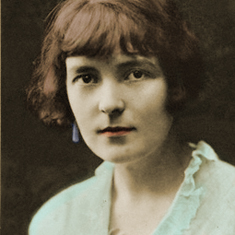Acknowledged widely as the outstanding soldier of the Second World War, Captain Charles Upham remains the only combatant soldier to have received the Victoria Cross and Bar (awarded to members of the armed forces of the Commonwealth for exceptional bravery). In Crete in May 1941, and the Western Desert in July 1942, Upham distinguished himself with displays of ‘nerveless competence’.
Born in Christchurch, New Zealand, in 1908 Upham was educated at Christ’s College and Canterbury Agricultural College, Lincoln. He was a farm manager and then farm valuer before enlisting in the Second New Zealand Expeditionary Force (aged 30) in 1939, quietly citing his reason as a desire to fight for justice.
Courage and Resource
Upham was renowned for combining controlled courage with quick-thinking resourcefulness. While most medals for bravery are awarded for a single act, Upham’s first citation was for nine days of skill, leadership and evident heroism. In March 1941, he was a Second Lieutenant in the 20th NZ Battalion in Crete. His display of courage included: destroying numerous enemy posts; rescuing a wounded man under fire; penetrating deep behind enemy lines and killing twenty-two German soldiers on the way to leading out an isolated platoon. This was all after being blown over by a mortar shell, and with a shrapnel wound in his shoulder and a bullet in his foot.
The incident that exemplified Upham’s courage was when two German soldiers trapped him alone on the fringes of an olive grove. Upham (on his way to warning other troops that they were being cut off) was watched by his helpless platoon, who were some distance away as he was fired on by the Germans. With any movement potentially fatal, he feigned death and with calculated coolness waited for the enemy soldiers to approach. With one arm lame in a sling, he used the crook of a tree to support his rifle and shoot the first assailant, then reloaded with one hand, and shot the second (who was so close as to fall against the barrel of Upham’s rifle).
Gallantry and Determination
Captain Upham’s second citation was for his part in the July 1942 attack on Ruweisat Ridge, Egypt, where the New Zealand Division was stranded after promised armoured support failed to come through. As the Allied forces struggled to hold the line, Upham led his company on what was described as a savage attack on German and Italian strongpoints. Upham was personally responsible for destroying a German tank and several guns and vehicles with hand grenades and, though he was shot through the elbow with a machine gun bullet and had his arm shattered, he went on again to a forward position and brought back a number of his men who had become isolated.
He was removed to the regimental aid post, but immediately after his wounds had been dressed he returned to his men. He consolidated and held his position and despite exhaustion, loss of blood and further injuries (as a result of artillery and mortar fire that decimated most of his company) he stayed with the only six remaining members until, now unable to move, he was overrun by enemy forces and captured.
Typifying his character and nickname ‘Pug’, he attempted to escape numerous times before being branded “dangerous” by the Germans and incarcerated in the infamous prison fortress Colditz.

(Left to right) Captain G A Parsons, Captain C H Upham, Captain A H Armour. Permission of the Alexander Turnbull Library, National Library of New Zealand, Te Puna Matauranga o Aotearoa, must be obtained before any re-use of this image.
On May 11 1945, King George VI pinned an official Victoria Cross onto Charles Upham’s uniform. He returned to New Zealand in September and ceased expeditionary service in November 1945. In April 1946 he was an official member of the New Zealand Victory Contingent.
Modest Hero
Epitomising a certain strain of Kiwi modesty, Charles Upham was embarrassed by the accolades he received and attempted to avoid international media attention. When the people of Canterbury collected ?10,000 for him to purchase a farm in recognition of his gallantry, Upham insisted the money be put towards an educational scholarship for children of returned soldiers.
At the conclusion of the war he returned to New Zealand to resume life as a sheep farmer in Hundalee, an isolated area north of Christchurch. It was rumoured that he never allowed a German-made car or machine onto the farm. He died in 1994.
When King George VI enquired of Major-General Kippenberger whether Upham deserved a Bar to the Cross, Kippenberger replied, “In my respectful opinion, sir, Upham has won the VC several times over.” The Complete Australian and New Zealand Victoria Cross Reference affirms that “without doubt Upham remains one of the most courageous leaders of any modern conflict”. Charles Upham was unassumingly a true edge warrior.

Presentation of the Victoria Cross award by General Auchinleek to Captain Charles Upham, Egypt, 4 November 1941. Permission of the Alexander Turnbull Library, National Library of New Zealand, Te Puna Matauranga o Aotearoa, must be obtained before any re-use of this image.
Sources:
Web References:
“Charles Upham”, http://loadstar.prometeus.net/zealand/famous/upham.html [no longer active 2006]
A short biography can be found at http://www.biography.com
[accessed April 2000]
A comprehensive account of Upham’s deeds can be found on John Cantwell’s website The Complete Australian and New Zealand Victoria Cross Reference, part of the “orders, decorations and medals” webring: http://www.ozemail.com.au/~vcweb/winners/nz_winners/
upham.htm
[accessed April 2000; no longer active 2006]
From the Official Victoria Cross website: http://www.chapter-one.com/vc/awards/u/1246.html
[accessed April 2000; no longer active 2006]
For the excellent DNZB entry on Upham by J.A.B. Crawford see:
http://www.dnzb.govt.nz/dnzb/.
[accessed September 2006]
Books:
McLauchlan, Gordon (editor-in-chief). (1999) Illustrated History of New Zealand, Bateman, Auckland.
Grayland, Eugene. (1967) Famous New Zealanders, Whitcombe and Tombs Limited, Christchurch.
Sandford, Kenneth (1963). The Mark of the Lion: Charles Upham, Victoria Cross and Bar, Washburn, Auckland. A book-length biography.













My father PL August served with Captain Charles Upham and indeed saw a lot of action with the Captain as (I believe) his Batman, Dad was with the eighth army and if my information is correct the Captain was Seconded to my Dads unit. Dad was not one to talk about the horrors of war but I do know that he was mentioned in dispatches possibly for coming to the Captains aid. Dad joined up before the war enlisting in the "Buffs" at Canterbury Kent UK and his first posting was to Palestine in a peace keeping role, at the outbreak of war he went to many parts of the world fighting the Germans/Italians and subsequently joining the Desert campaign, He was captured by the Italians and was interned in Italy until the Germans rounded them up (the POWs) and had them shipped to Germany as forced labour. During the late fifties / early sixties Dad made contact with the Captain who offered him work and accommodation on his farm in New Zealand, however family ties on my Mothers side prevented this. The two men did meet just one more time in the UK when the Captain was over here for a VC reunion. Please have you any further information on the above? My father died a couple of years back and I would dearly like to find out more. Electrician UK
Thanks for the article on Charles Upham - I am currently doing research for film screenplay - any additional information would be appreciated. damon george, damongnomad@yahoo.com Damon George